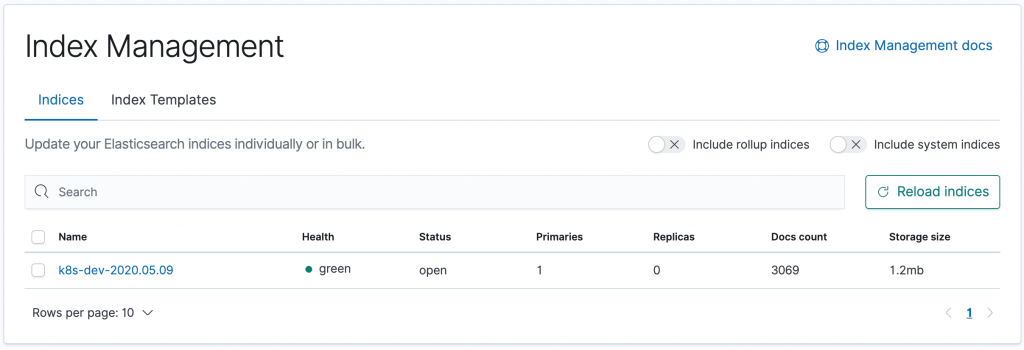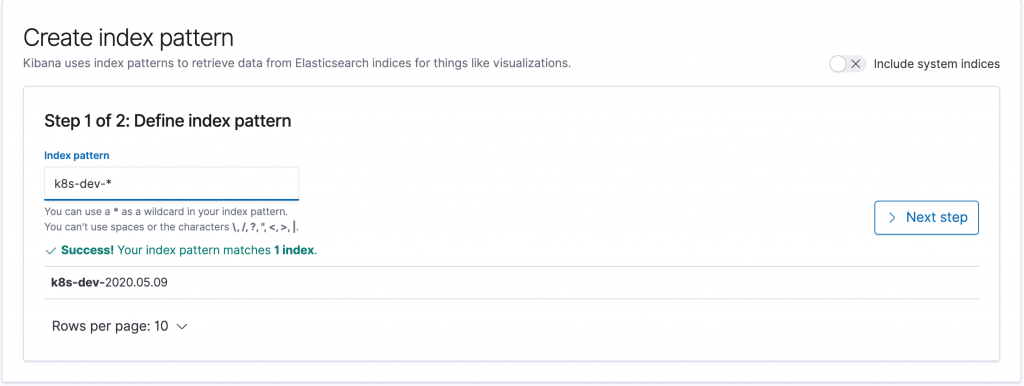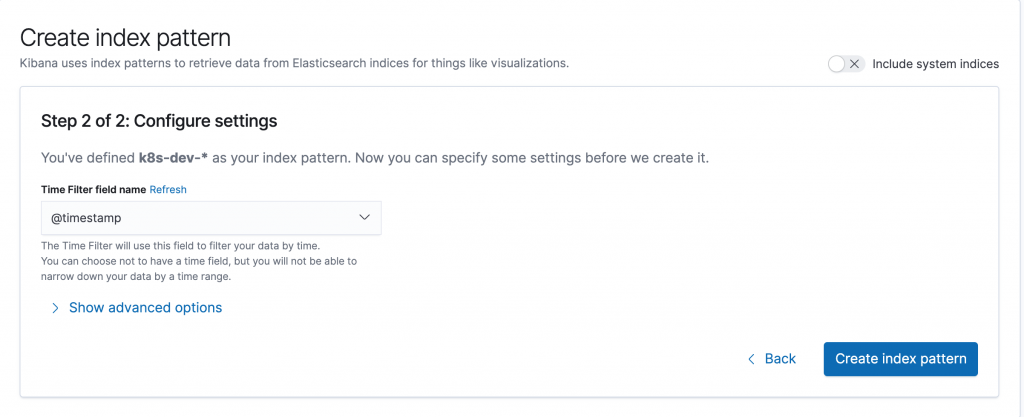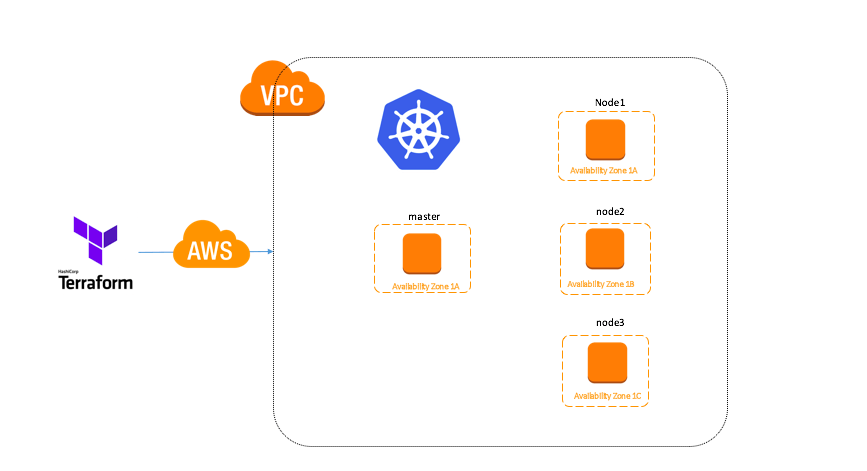GitLab is the first single application built from the ground up for all stages of the DevOps lifecycle for Product, Development, QA, Security, and Operations teams to work concurrently on the same project. GitLab enables teams to collaborate and work from a single conversation, instead of managing multiple threads across different tools. GitLab provides teams with a single data store, one user interface, and one permission model across the DevOps lifecycle allowing teams to collaborate, significantly reducing cycle time and focus exclusively on building great software quickly.
Here is a quick Tutorial that will teach you how to deploy Gitlab within Kubernetes Environment.
Requirements:
1. Working Kubernetes Cluster
2. Storage Class: We will use it for stateful deployment.
Here Git repository that I used to build Gitlab.
#Clone gitlab_k8s repo
git clone https://github.com/jaganthoutam/gitlab_k8s.git
cd gitlab_k8s
gitlab-pvc.yaml Contains the pv,pvc voulmes for postgres,gitlab,redis..
Here I am using my NFS(nfs01.thoutam.loc) server…
---
apiVersion: v1
kind: PersistentVolumeClaim
metadata:
name: nfs-gitlab
spec:
accessModes:
- ReadWriteMany
resources:
requests:
storage: 20Gi
---
apiVersion: v1
kind: PersistentVolume
metadata:
name: nfs-gitlab
spec:
capacity:
storage: 20Gi
accessModes:
- ReadWriteMany
nfs:
server: nfs01.thoutam.loc
# Exported path of your NFS server
path: "/mnt/gitlab"
---
apiVersion: v1
kind: PersistentVolumeClaim
metadata:
name: nfs-gitlab-post
spec:
accessModes:
- ReadWriteMany
resources:
requests:
storage: 20Gi
---
apiVersion: v1
kind: PersistentVolume
metadata:
name: nfs-gitlab-post
spec:
capacity:
storage: 20Gi
accessModes:
- ReadWriteMany
nfs:
server: nfs01.thoutam.loc
# Exported path of your NFS server
path: "/mnt/gitlab-post"
---
apiVersion: v1
kind: PersistentVolumeClaim
metadata:
name: nfs-gitlab-redis
spec:
accessModes:
- ReadWriteMany
resources:
requests:
storage: 20Gi
---
apiVersion: v1
kind: PersistentVolume
metadata:
name: nfs-gitlab-redis
spec:
capacity:
storage: 20Gi
accessModes:
- ReadWriteMany
nfs:
server: nfs01.thoutam.loc
# Exported path of your NFS server
path: "/mnt/gitlab-redis"
---
You can use other storage classes based on your cloud Providers.
gitlab-rc.yml Contains Gitlab Deployment config:
apiVersion: extensions/v1beta1
kind: Deployment
metadata:
name: gitlab
spec:
replicas: 1
# selector:
# name: gitlab
template:
metadata:
name: gitlab
labels:
name: gitlab
spec:
containers:
- name: gitlab
image: jaganthoutam/gitlab:11.1.4
env:
- name: TZ
value: Asia/Kolkata
- name: GITLAB_TIMEZONE
value: Kolkata
- name: GITLAB_SECRETS_DB_KEY_BASE
value: long-and-random-alpha-numeric-string #CHANGE ME
- name: GITLAB_SECRETS_SECRET_KEY_BASE
value: long-and-random-alpha-numeric-string #CHANGE ME
- name: GITLAB_SECRETS_OTP_KEY_BASE
value: long-and-random-alpha-numeric-string #CHANGE ME
- name: GITLAB_ROOT_PASSWORD
value: password #CHANGE ME
- name: GITLAB_ROOT_EMAIL
value: [email protected] #CHANGE ME
- name: GITLAB_HOST
value: gitlab.lb.thoutam.loc #CHANGE ME
- name: GITLAB_PORT
value: "80"
- name: GITLAB_SSH_PORT
value: "22"
- name: GITLAB_NOTIFY_ON_BROKEN_BUILDS
value: "true"
- name: GITLAB_NOTIFY_PUSHER
value: "false"
- name: GITLAB_BACKUP_SCHEDULE
value: daily
- name: GITLAB_BACKUP_TIME
value: 01:00
- name: DB_TYPE
value: postgres
- name: DB_HOST
value: postgresql
- name: DB_PORT
value: "5432"
- name: DB_USER
value: gitlab
- name: DB_PASS
value: passw0rd
- name: DB_NAME
value: gitlab_production
- name: REDIS_HOST
value: redis
- name: REDIS_PORT
value: "6379"
- name: SMTP_ENABLED
value: "false"
- name: SMTP_DOMAIN
value: www.example.com
- name: SMTP_HOST
value: smtp.gmail.com
- name: SMTP_PORT
value: "587"
- name: SMTP_USER
value: [email protected]
- name: SMTP_PASS
value: password
- name: SMTP_STARTTLS
value: "true"
- name: SMTP_AUTHENTICATION
value: login
- name: IMAP_ENABLED
value: "false"
- name: IMAP_HOST
value: imap.gmail.com
- name: IMAP_PORT
value: "993"
- name: IMAP_USER
value: [email protected]
- name: IMAP_PASS
value: password
- name: IMAP_SSL
value: "true"
- name: IMAP_STARTTLS
value: "false"
ports:
- name: http
containerPort: 80
- name: ssh
containerPort: 22
volumeMounts:
- mountPath: /home/git/data
name: data
livenessProbe:
httpGet:
path: /
port: 80
initialDelaySeconds: 180
timeoutSeconds: 5
readinessProbe:
httpGet:
path: /
port: 80
initialDelaySeconds: 5
timeoutSeconds: 1
volumes:
- name: data
persistentVolumeClaim:
#NFS PVC name identifier
claimName: nfs-gitlab
gitlab-svc.yml contains the gitlab services. I used 80,20 default ports.
apiVersion: v1
kind: Service
metadata:
name: gitlab
labels:
name: gitlab
spec:
type: NodePort
ports:
- name: http
port: 80
targetPort: http
- name: ssh
port: 22
targetPort: ssh
selector:
name: gitlab
postgresql-rc.yml Contains Postgres ReplicationController config :
apiVersion: v1
kind: ReplicationController
metadata:
name: postgresql
spec:
replicas: 1
selector:
name: postgresql
template:
metadata:
name: postgresql
labels:
name: postgresql
spec:
containers:
- name: postgresql
image: jaganthoutam/postgresql:10
env:
- name: DB_USER
value: gitlab
- name: DB_PASS
value: passw0rd
- name: DB_NAME
value: gitlab_production
- name: DB_EXTENSION
value: pg_trgm
ports:
- name: postgres
containerPort: 5432
volumeMounts:
- mountPath: /var/lib/postgresql
name: data
livenessProbe:
exec:
command:
- pg_isready
- -h
- localhost
- -U
- postgres
initialDelaySeconds: 30
timeoutSeconds: 5
readinessProbe:
exec:
command:
- pg_isready
- -h
- localhost
- -U
- postgres
initialDelaySeconds: 5
timeoutSeconds: 1
volumes:
- name: data
persistentVolumeClaim:
# NFS PVC identifier
claimName: nfs-gitlab-post
postgresql-svc.yml contains postgres service config :
apiVersion: v1
kind: Service
metadata:
name: postgresql
labels:
name: postgresql
spec:
ports:
- name: postgres
port: 5432
targetPort: postgres
selector:
name: postgresql
redis-rc.yml contains redis ReplicationController config:
apiVersion: v1
kind: ReplicationController
metadata:
name: redis
spec:
replicas: 1
selector:
name: redis
template:
metadata:
name: redis
labels:
name: redis
spec:
containers:
- name: redis
image: jaganthoutam/redis
ports:
- name: redis
containerPort: 6379
volumeMounts:
- mountPath: /var/lib/redis
name: data
livenessProbe:
exec:
command:
- redis-cli
- ping
initialDelaySeconds: 30
timeoutSeconds: 5
readinessProbe:
exec:
command:
- redis-cli
- ping
initialDelaySeconds: 5
timeoutSeconds: 1
volumes:
- name: data
persistentVolumeClaim:
#NFS PVC identifier
claimName: nfs-gitlab-redis
redis-svc.yml contain redis service config:
apiVersion: v1
kind: Service
metadata:
name: redis
labels:
name: redis
spec:
ports:
- name: redis
port: 6379
targetPort: redis
selector:
name: redis
Change the configuration according to your needs and apply using kubectl.
kubectly apply -f .
#and check if your pods are running or not.
root@k8smaster-01:~# kubectl get po
NAME READY STATUS RESTARTS AGE
gitlab-589cb45ff4-hch2g 1/1 Running 1 1d
postgres-55f6bcbb99-4x48g 1/1 Running 3 1d
postgresql-v2svn 1/1 Running 4 1d
redis-7r486 1/1 Running 2 1d
Let me know if this helps you.




